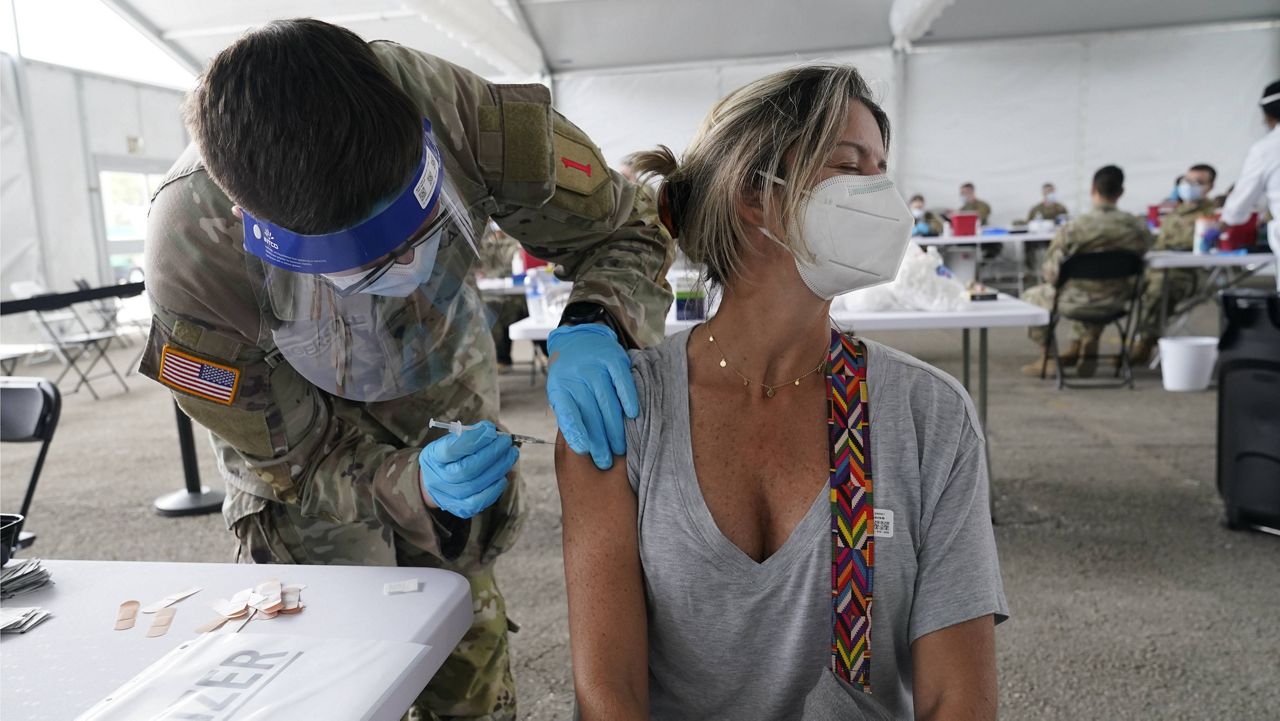The Pfizer-BioNTech coronavirus vaccine appears to be highly effective against the more contagious COVID-19 variant first detected in Brazil, a new study found.
What You Need To Know
- The Pfizer-BioNTech coronavirus vaccine appears to be highly effective against the more contagious COVID-19 variant first detected in Brazil, a new study found
- Blood taken from people who had received the vaccine was roughly as effective at neutralizing a lab-engineered version of the mutated virus as it was at stopping a previous, less contagious strain
- The scientists also confirmed earlier studies that appeared to show that the vaccine offers significant protection against the variants first detected in the United Kingdom and South Africa
- They, however, noted that more research is needed outside a lab
The study, conducted by scientists from Pfizer, BioNTech and the University of Texas Medical Branch at Galveston, was published Monday in the New England Journal of Medicine.
Blood taken from people who had received the vaccine was roughly as effective at neutralizing a lab-engineered version of the mutated virus, known as P.1, as it was at stopping a previous, less contagious strain, the study found.
The scientists also confirmed earlier studies that appeared to show that the vaccine offers significant protection against the variants first detected in the United Kingdom (B.1.1.7) and South Africa (B.1.351), which also are more transmissible. The researchers said the vaccine worked equally well against the variant identified in the U.K. as it did against the previous strain. It offered less but still robust protection against the variant identified in South Africa, the study found.
The scientists, however, noted that more research is needed outside a lab.
“Ultimately, conclusions about vaccine-mediated protection that are extrapolated from neutralization or T-cell data must be validated by real-world evidence collected in regions where the [COVID-19] variants are circulating,” the study said.
As of Tuesday, data from the Centers for Disease Control and Prevention showed that there have been 15 reported cases of the P.1 variant in the U.S., 81 cases of the South African strain and 3,037 cases of the U.K. version.



